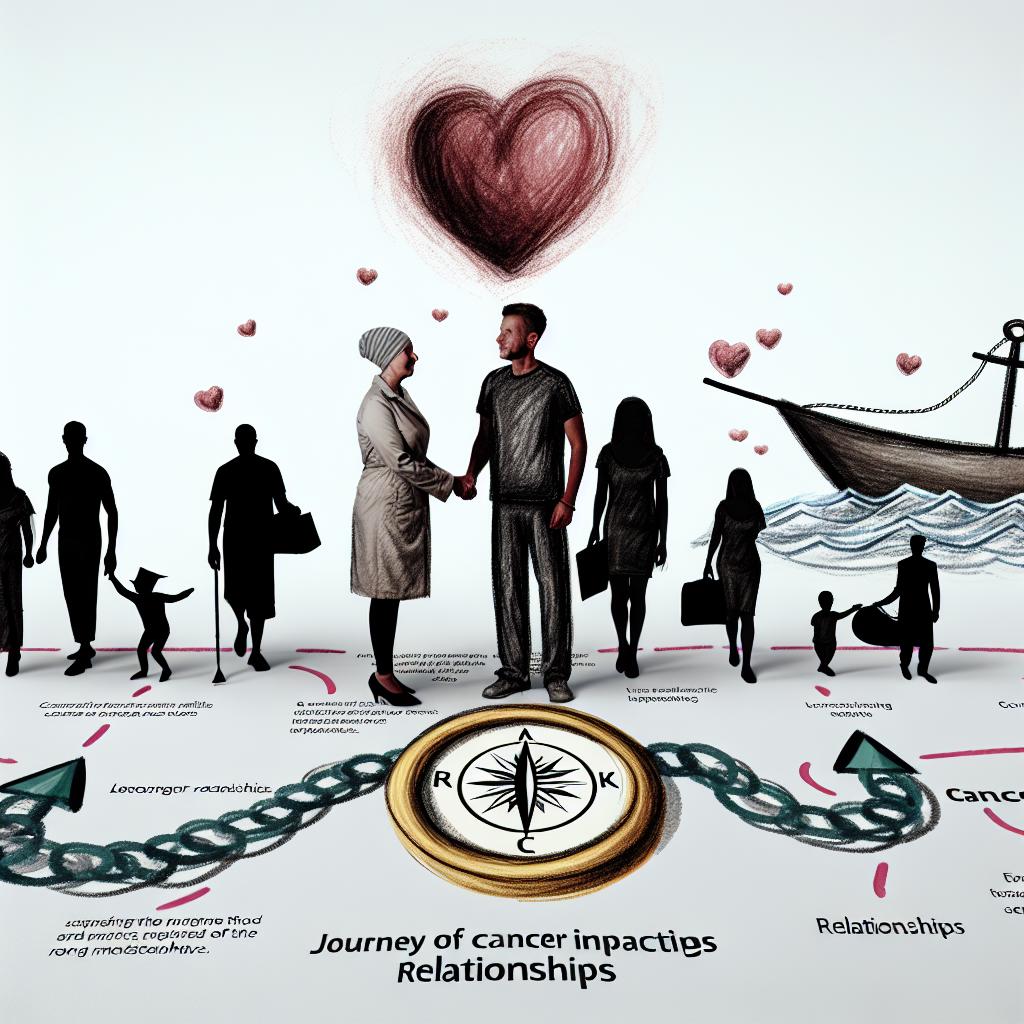Understanding the Impact of Cancer on Relationships
Cancer is not just a physical ailment that affects the patient; it significantly impacts the relationships surrounding them. The diagnosis can introduce emotional, psychological, and financial stressors that strain family and social connections. Understanding these impacts is the first step toward strengthening relationships in such challenging circumstances.
Emotional Strain
When a cancer diagnosis is made, both the patient and their loved ones experience a wide range of emotions, including fear, anxiety, and sadness. These feelings can sometimes lead to misunderstandings and communication barriers. It is essential to recognize that these emotional responses are normal and part of the process.
Communication Issues
Effective communication can be hampered by the emotional turmoil caused by cancer. Patients might struggle to express their needs, while caregivers may feel overwhelmed by the responsibility. Establishing open and honest communication channels is crucial. Encouraging regular conversations can help ensure that everyone involved feels heard and supported.
Understanding Emotional Responses
Understanding the different emotional responses that arise can aid in managing them more effectively. For instance, recognizing the signs of anxiety or depression in each other can prompt timely interventions, allowing for healthier communication dynamics. Patients and loved ones might find it helpful to share their emotions freely to avoid misunderstandings and clear any misconceptions.
Changes in Roles and Responsibilities
Cancer often necessitates a shift in household roles, especially if the patient needs intensive care. This shift can lead to additional stress, as family members may have to take on new responsibilities. Understanding and adjusting to these changes can help maintain stability in the relationship.
Adaptation to New Roles
The adjustment to new roles may involve developing new skills or knowledge, such as learning to manage financial accounts or undertaking caregiving tasks. For instance, family members might need to familiarize themselves with medical schedules or dietary restrictions that are part of the patient’s care plan. The flexibility in adapting roles while providing mutual support can contribute to a stronger family unit during such times.
Financial Stress
The cost of cancer treatment can impose significant financial burdens. Discussions about budgeting, resources, and financial planning may be required to alleviate the financial stress on the relationship.
Navigating Financial Discussions
Financial discussions may initially feel uncomfortable but are necessary for stability. Approaching these talks with transparency while researching available financial assistance or support schemes can make a difference. Identifying areas to save or explore benefits such as insurance coverage can reduce financial anxiety. Consulting with a financial advisor who specializes in healthcare can also aid in managing costs effectively.
Strategies to Strengthen Relationships
There are several strategies that can be employed to strengthen relationships affected by cancer. These strategies focus on enhancing communication, providing support, and fostering a nurturing environment.
Enhancing Communication
Creating a space for open dialogue can facilitate better understanding. Scheduled family meetings or regular check-ins can be beneficial. It is important to approach conversations with empathy and patience.
Structured Communication Practices
Implementing structured communication practices, such as setting up regular times for family discussions, ensures that everyone remains informed and involved. Using tools such as journals or digital applications to track communication can also help in maintaining an ongoing dialogue about concerns, updates, or simply daily life happenings.
Professional Support
Professional counselors or therapists can provide valuable support. They offer strategies to improve communication and address emotional responses in a constructive manner. Many hospitals and cancer centers have resources available to connect families with professionals.
Counseling Sessions
Engaging in counseling sessions either individually or as a family can provide specialized strategies to improve dynamics. The involvement of trained therapists can introduce new perspectives and coping mechanisms, aiding in the transition through difficult emotional landscapes.
Providing Support
Offering emotional and practical support can make a significant difference. Whether it’s accompanying the patient to appointments or just being there to listen, small acts of support can strengthen bonds.
Daily Acts of Support
Support is not always grand gestures; it can manifest through daily actions like preparing meals, running errands, or even shared silence. These consistent acts of support strengthen trust and connections between the patient and family members or friends.
Community Resources
Engaging with support groups, both in-person and online, provides a platform for sharing experiences and gaining insights from others facing similar challenges. These resources can be found through local hospitals or dedicated cancer support organizations.
Leveraging Support Networks
Connecting with broader community resources, such as workshops or educational events, can expand understanding and provide additional support channels. These interactions foster a sense of shared experience and build a community that collectively addresses shared concerns.
Fostering a Nurturing Environment
Creating a positive and supportive home atmosphere can play a vital role in relationship dynamics. Encouraging activities that bring joy and relaxation can help counterbalance the stress associated with cancer.
Home Environment Adjustments
Making necessary adjustments at home could involve decluttering to create calming spaces, introducing comforting décor, or incorporating mindful practices that promote tranquility. Such adjustments help establish a sanctuary that aids emotional well-being and fosters positivity.
The Role of Self-Care
Both patients and caregivers need to prioritize self-care. Taking time to relax and engage in enjoyable activities can help individuals recharge and maintain their emotional well-being. Self-care strategies might include mindfulness practices, exercise, or hobbies.
Individual and Collective Self-Care
Promoting self-care both individually and collectively nurtures the capacity to handle stress more effectively. Group activities such as family walks or shared hobbies can amplify relaxation. Equally, maintaining personal space for solitude or reflection aids individual rejuvenation.
Cancer’s impact on relationships is profound but not insurmountable. By fostering open communication, seeking support, and adapting to new roles, families can navigate these challenges more effectively. Resources for additional information and support can be found through specific organizations dedicated to supporting cancer patients and their families, such as the American Cancer Society.
This article was last updated on: June 17, 2025

